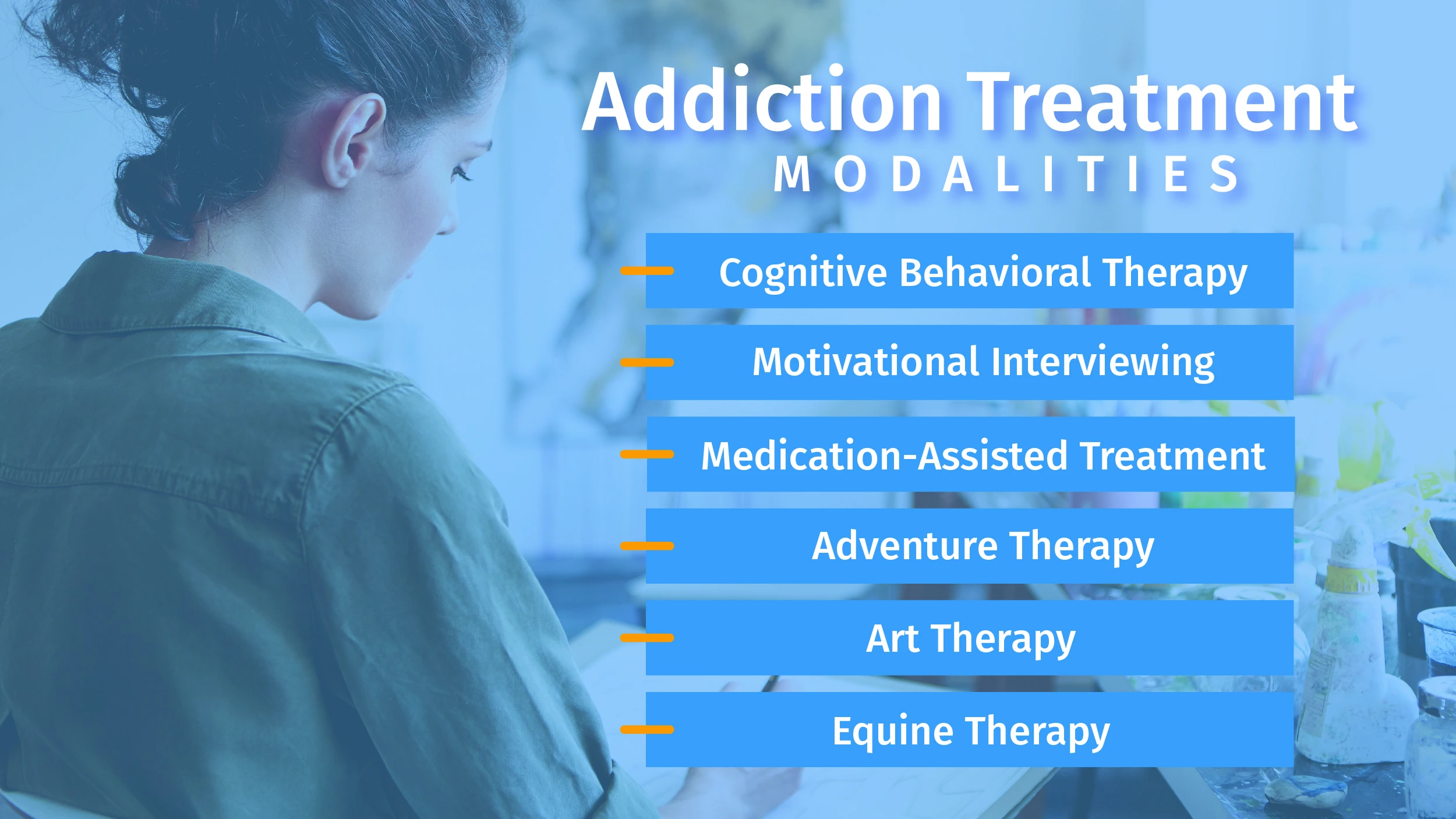
Examples Of Dual Diagnosis
Explore the examples of dual diagnosis and its treatment plans for better outcomes with The Recovery Team-Newton.

Overcoming addiction involves professional treatment tailored to each person’s needs. Different modalities or techniques are available as part of addiction treatment programs. Understanding the various addiction therapy options helps choose the most effective path to recovery.
Cognitive behavioral therapy (CBT) helps change the dysfunctional thinking patterns and behaviors associated with addiction. CBT helps clients identify triggers, correct distorted thinking, develop healthier coping mechanisms, and change social connections.
Goals of CBT include:
CBT provides concrete tools to prevent relapse, manage cravings and ongoing recovery from addiction.
Motivational interviewing (MI) is a counseling approach aimed at building internal motivation and commitment to change. MI takes a compassionate style of communicating to explore ambivalence surrounding addiction and highlight personal reasons for becoming sober.
MI techniques include:
Motivational interviewing fosters readiness to change and belief in one’s ability to successfully overcome addiction.
Medication-assisted treatment (MAT) uses FDA-approved medications typically combined with counseling and behavioral therapies for a whole-person approach to addiction treatment. Medications help normalize brain chemistry, block opioid effects, relieve withdrawal symptoms, and reduce cravings.
Common MAT medications:
MAT provides pharmaceutical support while clients work to change addictive patterns through counseling strategies. Ongoing medication management can help sustain recovery.
Holistic therapies address underlying causes of addiction and focus on whole-person health. Holistic modalities aim to heal the mind, body, and spirit through natural and experiential techniques.
Holistic options include:
Integrating holistic practices enhances motivation, life balance, healthy coping abilities, and spiritual growth in recovery.
Adventure therapy uses challenging outdoor activities led by skilled professionals to treat substance abuse and mental health conditions. Activities range from wilderness expeditions to outdoor recreational activities.
Benefits of adventure therapy include:
Outdoor recreational pursuits help empower people recovering from addiction.
Art therapy engages the creative process to help people in recovery express emotions, gain insights, and address addiction issues through imagery. Different art modalities include painting, drawing, sculpting, collage, sand play, dance/movement, poetry, music, drama, etc.
Art therapy can help:
Artistic creative activities promote healing and personal growth in a safe, controlled setting.
Equine-assisted therapy uses interaction with horses to help promote emotional growth and addiction recovery. Working with horses helps improve self-confidence, communication, trust, impulse control, and mood.
Benefits of equine therapy include:
Equine therapy provides a unique experiential approach to addiction treatment.
There are many proven modalities to help people overcome addiction through professional treatment programs. Cognitive, medication, holistic, experiential, and other therapies each provide targeted benefits.
The most effective addiction treatment incorporates a customized combination of modalities tailored to each person’s needs and recovery goals. Finding the right modalities for you requires an integrated assessment by knowledgeable specialists. Long-term recovery involves ongoing application of the strategies and skills gained through therapeutic modalities.
The most effective modalities are cognitive behavioral therapy to change addict thinking and behavior combined with medication-assisted treatment for craving relief. But holistic and experiential therapies also provide significant benefits.
It takes consistent practice over months and years for new therapeutic skills to become ingrained. You can expect to see gradual improvements but recovery is an ongoing process.
Common techniques include cognitive behavioral therapy, motivational interviewing, psychodynamic therapy, trauma therapy, family counseling, group therapy, and support groups.
Yes, therapy is a critical component of addiction treatment. Counseling helps people heal underlying issues, develop coping skills, change social patterns, and build a robust recovery plan.
Common medications for alcoholism include disulfiram, naltrexone, and acamprosate which make you sick, block effects, and reduce cravings when drinking. Medications are combined with counseling.

Explore the examples of dual diagnosis and its treatment plans for better outcomes with The Recovery Team-Newton.

Explore how long drug rehab programs are with the complete guide from The Recovery Team-Newton.

How much does drug rehab cost without insurance? The Recovery Team-Newton explains financing options and resources.